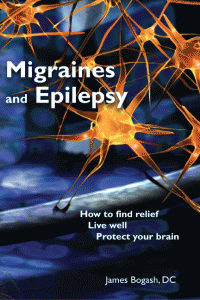
Migrane headaches and gluten linked
You suffer from headaches and have been searching for some type of chronic migraine relief; so your PCP should send you to a neurologist, right?
It sounds like a great place to start. After all, your headache is in your head and deals with your nervous system, right? If you’ve been reading the Rantings for any time now, you understand how flawed this method of thinking is. Migraines may be felt in the head, but they are really a problem with your entire body. Something is wrong, and your body is screaming at you to fix it in the loudest way possible.
If this is the case, it certainly makes medicating a headache without finding the root cause shortsighted, if not downright dangerous. Dangerous because, in those who experience migraines (particularly with aura and in women), there is an increased risk for things like stroke and heart disease. Merely treating the headache with medications does not lower this increased risk.
So what does all this have to do with this particular study?
There is a well established relationship between food allergies and neurological problems, most notably wheat allergies to gluten. The list is quite long, but does include seizures, which I have written in a previous blog article that can be read by clicking here.
Given that I’ve written a book on the relationship between migraines and seizures, it should come as no big shocker to you that, if gluten is related to seizures, it just might be related to chronic migraines headaches as well.
Researchers looked at patients with gluten sensitivity and inflammatory bowel disease to see how many of them experienced headaches. Here’s what they found:
- Celiac disease led to a 379% higher risk of experiencing headaches.
- Gluten sensitivity led to a whopping 953% increased risk of migraine headaches (Tweet this).
- For inflammatory bowel disease, there was an increased risk of 266%.
- 72% of celiac disease subjects graded their migraine as severe.
- 30% of IBD graded their migraines as severe.
- 60% of GS rated his or her headache as severe.
These are some very strong associations. Strong enough so that any physician treating a patient with migraines should be asking about diet and, more specifically, gluten intake. If they do not, and the first recommendations are medications, it’s probably time to run the other way. It would be a strong indication that the physician does not stay current with medical literature. This is not someone I would want taking care of my brain.
If you suffer from migraines, have you tried a gluten free diet? If so, did it seem to help?
